Sales Clawbacks: Why You Should Care
.avif)
Imagine landing a massive deal, celebrating the win, and seeing a juicy commission hit your paycheck, only to get a message three months later saying you have to pay it back. That’s the reality many sales reps face under clawback policies.
Sales clawbacks aren’t just fine print in your compensation plan. They can shape your earnings, your trust in leadership, and your decision to stay (or leave) a company. While businesses see them as a safety net, reps often experience them as unexpected gut punches, especially when a lost deal wasn’t their fault.
In this guide, we’ll break down what sales clawbacks actually are (beyond the legal jargon), why companies use them, how they impact reps in real life (with real stories), and most importantly- how you can protect yourself without sounding like a troublemaker during comp negotiations.
This isn’t just another generic explainer. We’ll explore the friction, the fairness, and the future of clawbacks- from both sides of the table.
What is a Clawback?
Employers can actually legally take the commission you make on a sale.
Here is a sales fellow complaining when he found out- the bad way- about clawbacks.

In sales, clawback policies are made to recover all or part of the sales commissions from a salesperson when they meet certain pre-defined conditions stated in the employment contract.
For example, if a sales rep has it in his contract that customers who cancel within 2 months lead to those deals' commissions being clawed back, then the company can recover commissions from them entirely. Imagine losing all of the commission you made on a deal closed months ago- that is the reality of clawbacks.
Why do Clawback Policies Exist in Sales?
At their core, clawback clauses are designed to protect companies from paying commissions on deals that don’t pan out. But let’s be real, while that makes sense on paper, the lived experience can feel very different depending on which side of the table you’re on.
From the company’s perspective, clawbacks help ensure that commissions are tied to real, sustained revenue and not just closed contracts that unravel shortly after. They’re meant to discourage shady sales tactics and align everyone around long-term success. But to a rep, a clawback may often feels like getting punished for something outside your control.
Here are the most common triggers that lead to clawbacks:
- A customer fails to complete payment, but the commission has already been paid.
- The contract is canceled shortly after onboarding—often within 30, 60, or 90 days.
- The deal is renegotiated or downgraded, shrinking the total value it was originally commissioned on.
- The company finds evidence of fraudulent activity, like misrepresentation or falsified documentation.
In simple words, if the deal doesn’t stick, the commission doesn’t either.
This is why even outside of sales, clawback policies are now considered a governance best practice. In fact, under the SEC Clawback Rules, all companies listed on the NYSE and Nasdaq were required to implement formal clawback policies by December 1, 2023—a sign of just how serious the issue has become in corporate America.
Clawback Methods Compared: Direct, Negative Credit, Retroactive
To understand the different methods of a sales commission clawback, let's take an example scenario. We will break down the different types of sales clawback with actual deal math below.
Salesperson Name: Michael
Quota for Period 1 (Jan-Feb-Mar): $150,000
Quota for Period 2 (Apr-May-Jun): $250,000
Commission Rate up to Quota: 6%
Commission Rate Above Quota: 9%
Clawback Clause: Contract cancellation by customer within 6 months.
Here is the info of deals closed and commissions earned by Michael.
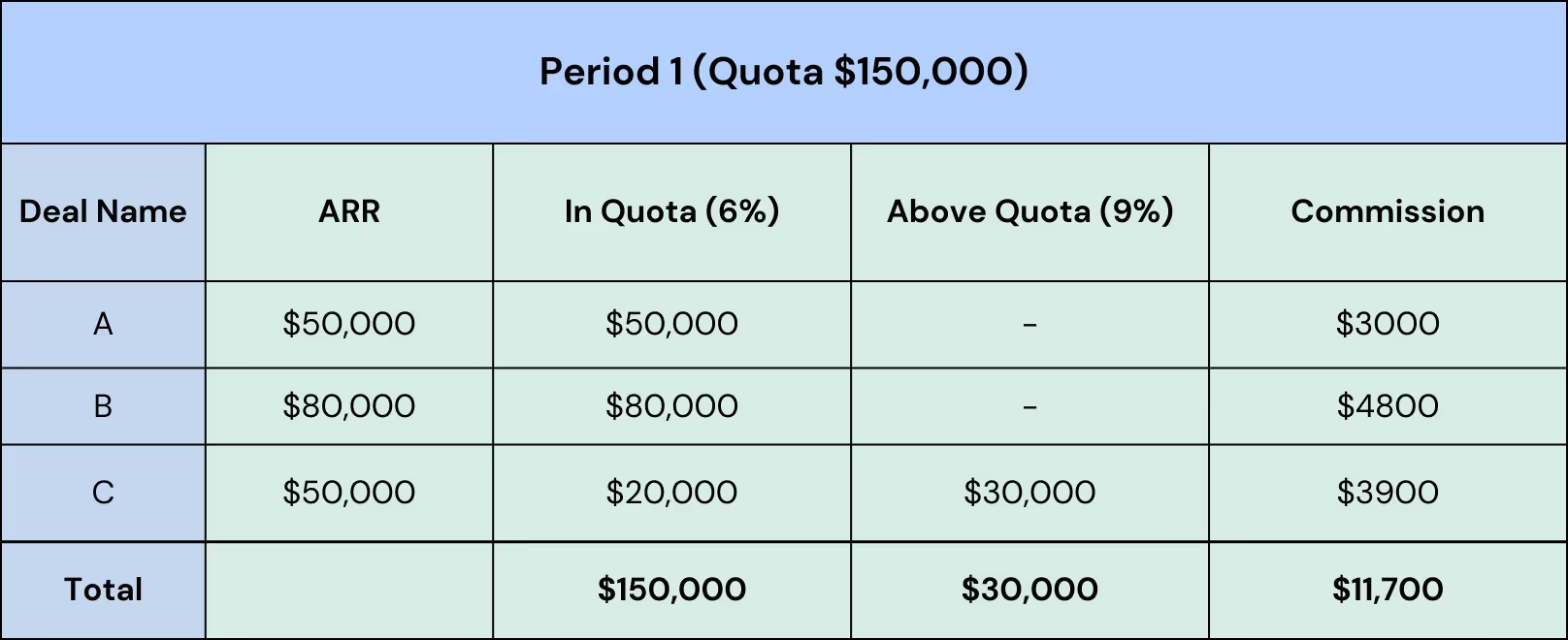
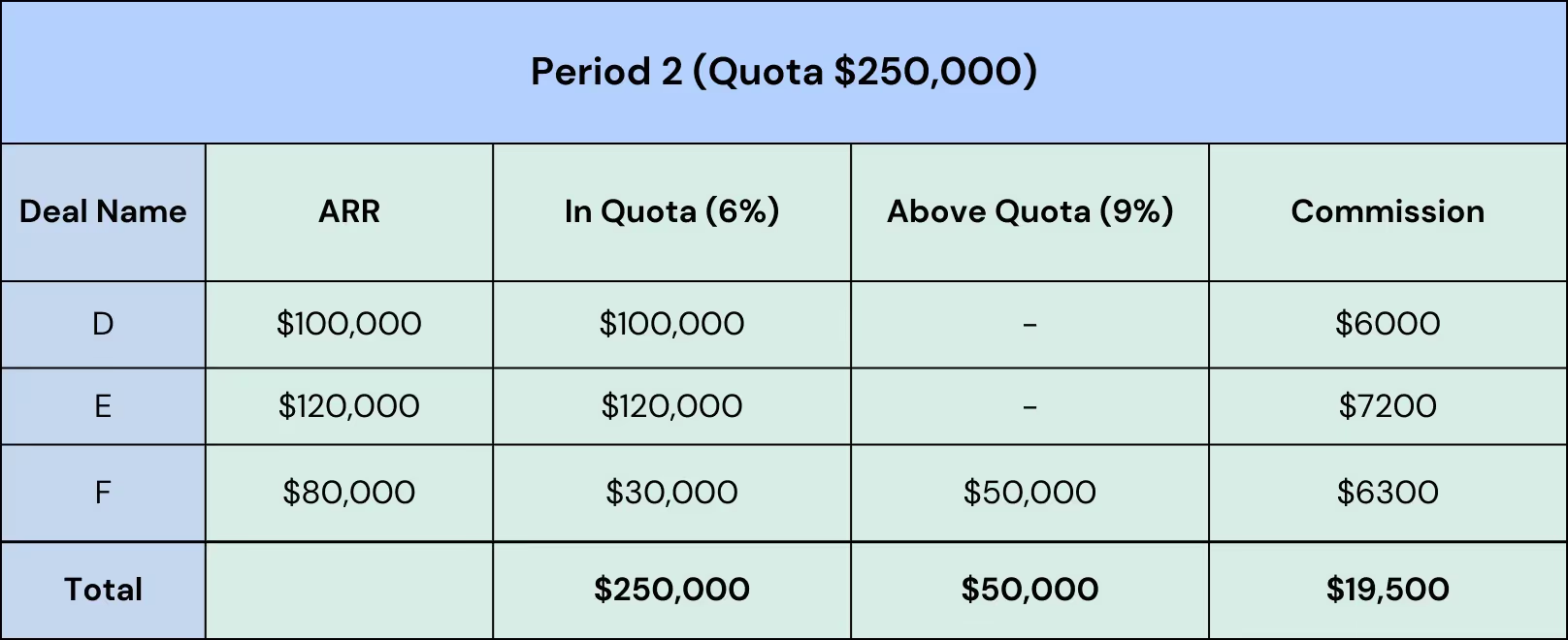
Method #1: Direct Commission Clawback (Commission Only Clawback)
Suppose Deal A ($50,000), closed in January, is cancelled by the customer in April (3 Months). As the clawback clause states that if the deal is cancelled within 6 months of closure, the commissions will be recovered, Deal A's commissions are subject to being recovered. Hence, Michael will have to pay back the $3000 commission he received for closing Deal A in the subsequent period when the customer actually leaves.
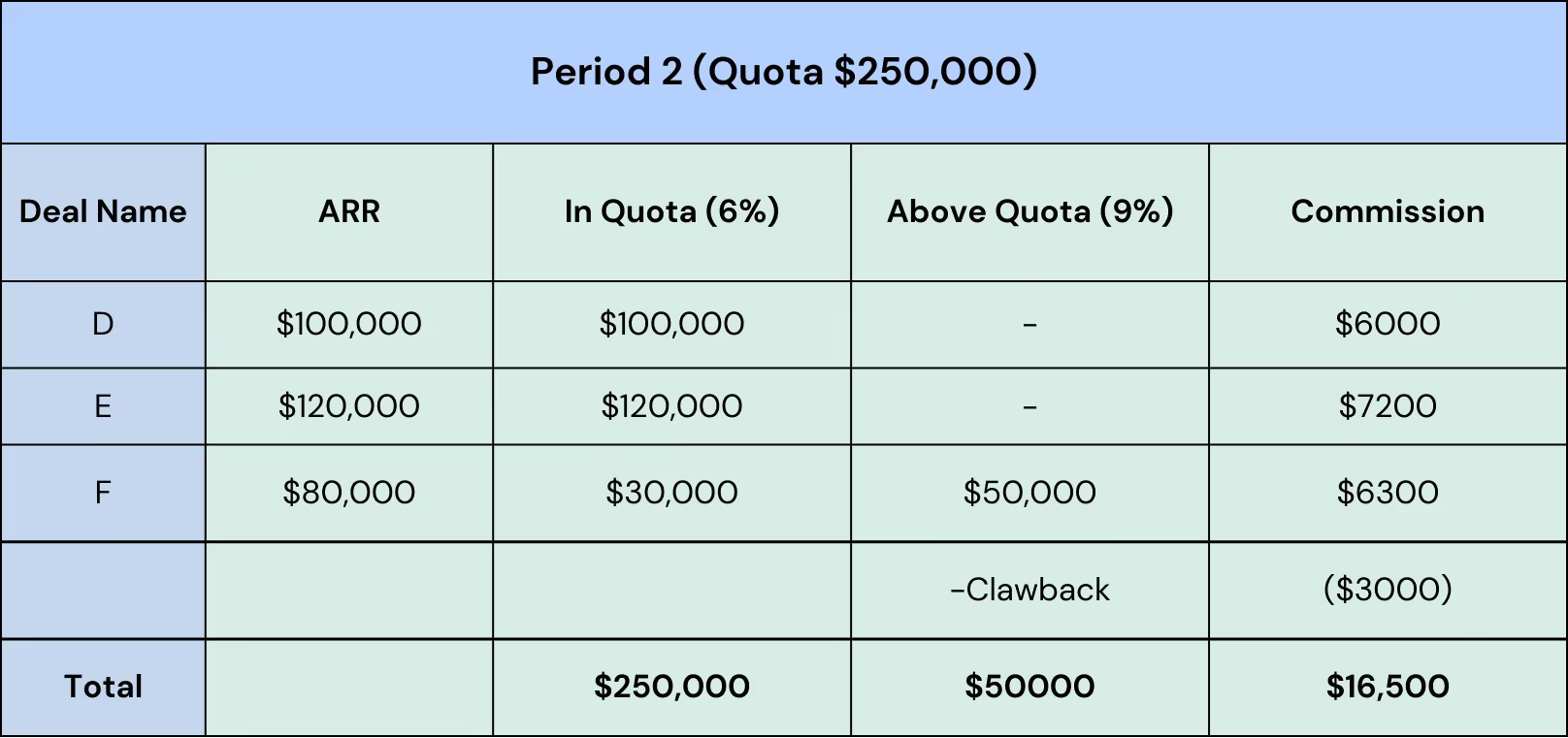
Alternatively, if Deal C had churned instead, the commission recovered would be $5400 since Kelly is also earning accelerated commissions on Deal C.
This method is the most straightforward for both the sales reps and the administration. It does not affect quota amount at all.
Method #2: Negative Quota Credit
This method treats the churned deal as a 'negative deal' and applies a negative quota credit to the current period in which the deal has been cancelled. It benefits companies as it essentially increases the quota for the current period. It is beneficial for companies using tiered sales commissions.
Suppose Deal A is cancelled by the customer in June (within 6 months). The deal amount ($50,000) is applied as a negative credit in Period 2, which brings down attainment. This negative amount essentially increases the quota for Michael to $300,000 instead of $250,000 because of the negative quota credit.
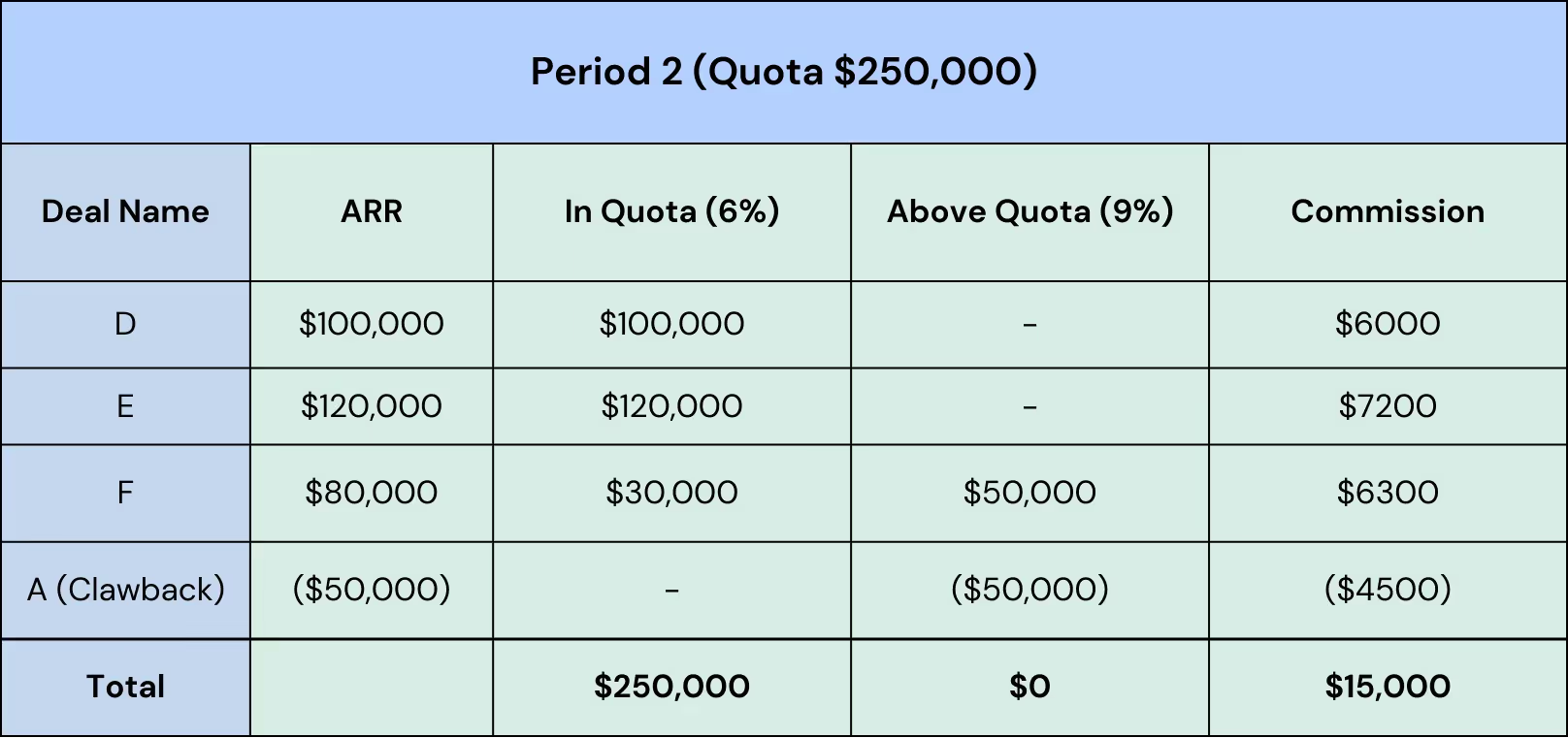
This method creates clearer commission reports and is easier to implement in automated systems.
However, there is a clear drawback, Salespersons may be incentivized to push or delay their deals to future periods knowing that their quota for the current period has been increased due to clawback. Hence, they will try to stall the deal in order to earn more commissions in the future, when the quota is normal and they can exceed it normally to earn accelerated commissions.
Method #3: Retroactive Negative Quota Credit
This method applies a negative quota credit to the previous period in which the deal was closed. It overcomes the main drawback of Method #2, as the quota for the current period remains unaffected. It reduces the quota for the previous period, which removes over-attainment. Then, the difference between the commission paid in the previous period and the commission that is actually earned (reducing clawback) is deducted from the current period's payout.
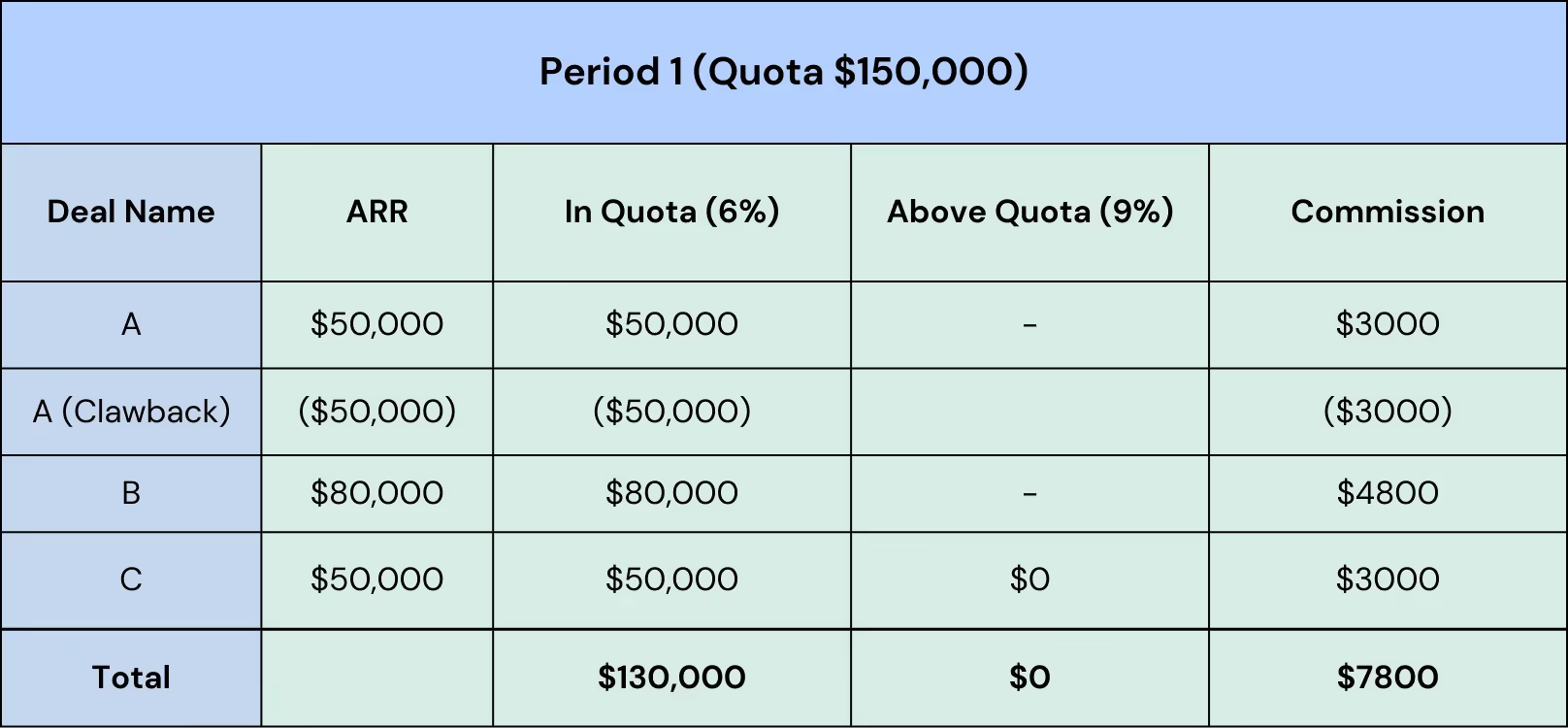
Delta= Commission Paid For Period 1 - Commission Actually Earned in that Period
= $11700-$7800
= $3900
Now this difference will be subtracted from current period's payout without affecting current quota.

Benefits of Sales Clawback Provisions
There are many benefits to companies when using clawbacks. Some of these are:
- Financial Security: Sales commissions are given to sales reps to motivate them to generate more revenue, as they receive a cut of the revenue in the form of commissions. However, if the company does not end up generating revenue from a deal because of early termination by the customer, failure of payment by the customer, etc., then the commission paid out on the deal is causing a loss. Hence, it is recovered through commission clawbacks.
- Legal Security: In the rare event of a sales rep engaging in fraudulent activities to close more deals and earn more commission by using shady methods (fake deals, providing wrong information to customers, etc.), the company can simply take back commission through clawback, hence, it provides legal protection against fraudulent activities. Although this is rare, it acts as a strong deterrent for sales reps against fraudulent activities since they know commissions earned in unjustified ways will have to be repaid through commission clawbacks.
- Improved Customer Quality: Clawback provisions push the sales teams to focus more on customer quality and retention. Early termination by customers is the biggest trigger for sales commission clawbacks. Hence, sales reps are driven to focus on more comprehensive onboarding support and ensuring that customer quality is high and the chances for churning early are as low as possible.
- Improved Accountability: Commission clawback clauses make sales reps more accountable for customer experiences and quality of revenue. They ensure that sales reps do not run after commissions blindly, causing misconduct, but ensure high standards of deal quality. It also encourages them to help customers understand their offering better, give onboarding support, and maintain smooth communication with customers. This fosters a culture of 'owning' each deal sales reps bring forward, and ensuring smooth operations afterwards.
Also Read: Mitigating Overpayments and Clawbacks Correctly
Disadvantages of Clawback Provisions
Even though they serve as protection measures for companies, commission clawbacks also have potential ramifications if not handled properly. Here are the most common problems companies face when implementing sales commission clawbacks:
- Employee Dissatisfaction and Demotivation: Unclear or cloudy clawback policies may make sales reps feel that there is always a sword hanging at their neck, and their commissions can be taken back whenever the company wants, which can create demotivation and negatively affect sales performance. Clawbacks can also discourage innovation in sales and deter sales reps from trying out new methods in fear of the commissions being recovered later on.

- Perceived Lack of Trust and Harm to Organizational Culture: Sales clawback policies and the entire administrative process around them is often opaque and unexpected for sales reps. This creates a rift between sales administration and the sales reps who think that their commissions are always at risk. This builds up negativity and harms the organizational culture.
- Administrative Complexity: Accounting and monitoring customer journeys and commission cycles to manage sales commission clawbacks proves to be extremely complex work for sales operations and finance teams. Different clawback methods may add multiple hours to the commission cycles, leading to delayed commissions and frustration.
These disadvantages of commission recoveries can be mitigated by making sure the clawback schemes are transparent and visible. Doing this is much more effective with the use of sales compensation software that can handle clawbacks, such as Visdum.
How to Design Clawback Policies that Don't Kill Morale
Clawbacks can feel like a corporate tripwire for sales reps, but for leaders, they’re a vital safeguard. Done right, clawbacks preserve revenue integrity, reinforce accountability, and protect against fraud or churn. Done poorly, they erode trust, trigger attrition, and poison culture.
Here’s the good news: you can create clawback policies that are firm but fair- even respected by your sales team. It all comes down to transparency, consistency, and execution.
Here are five best practices every leader should follow:
1. Build for Clarity, Not Control
Avoid vague or open-ended clawback clauses. Instead, spell out the exact conditions that trigger recovery:
- Customer cancellation within X days
- Unpaid invoices after Y attempts
- Misrepresentation of deal value or scope
Where possible, attach real numbers and timelines. Reps are more accepting of clawbacks when they know the rules in advance and see them applied consistently.
2. Standardize the Policy Across the Team
The fastest way to destroy morale is inconsistent enforcement. If clawbacks apply to one rep but not another, you’ll invite resentment and churn. Ensure:
- Every rep has the same triggers, thresholds, and recovery timelines
- Exceptions (if any) are clearly documented and justified
- Legal, finance, and HR all sign off on the policy
Fairness isn’t optional. It’s what makes your clawback enforceable and respected.
3. Don’t Just Announce the Policy—Teach It
Many clawback blowups happen because reps don’t fully understand how clawbacks work until it’s too late. Fix this with:
- Live sessions during onboarding and plan rollouts
- Real examples showing how clawbacks are calculated
- A single-page “Clawback Cheat Sheet” for easy reference
You’ll reduce disputes and boost rep confidence if they feel informed, not blindsided.
4. Align Incentives with Customer Retention
If your goal is to prevent revenue leakage, clawbacks are only part of the equation. The smarter move is designing comp plans that reward reps not just for booking deals but for closing quality ones.
Consider:
- A small extra commission when the client hits a key milestone
- Offering bonuses for customers that renew after 90 days
- Collaborating with CS and onboarding to reduce churn triggers
When your reps win by delivering long-term value and not short-term volume you’ll need fewer clawbacks altogether.
5. Automate It or Regret It
Manual clawback tracking is a nightmare for RevOps and confusing for reps. Invest in compensation software that can:
- Flag at-risk deals
- Track clawback exposure in real time
- Adjust payouts transparently and accurately
The result? Fewer errors, faster processing, and a team that trusts the math.
Bottom Line:
You don’t need to choose between protecting the company and supporting your sales team. With the right approach, a clawback policy can be clear, consistent, and even confidence-building for both sides of the table.
When reps understand the “why,” trust the process, and feel the policy is applied fairly, clawbacks stop being a source of fear and start being a tool for alignment.
Look at this person for example:

How to Protect Yourself from Clawbacks Without Sabotaging Your Career
Let’s face it: clawbacks aren’t going anywhere. But that doesn’t mean you’re powerless. Whether you're evaluating a new job offer or already knee-deep in a comp plan, there are smart, non-confrontational ways to protect your earnings, and your sanity, without being labeled “difficult.”
Here’s how to navigate clawbacks like a pro:
1. Ask the Right Questions Before You Sign Anything
Don’t wait until the first surprise clawback hits. During the offer stage or any time comp plans are updated, ask questions like:
- “Can you walk me through the clawback conditions in the plan?”
- “What percentage of reps typically face clawbacks here?”
- “What happens if a customer churns due to onboarding or support issues?”
These are fair, professional questions that signal you’re thinking long-term and not trying to dodge accountability.
2. Negotiate Guardrails into Your Comp Plan
Most reps don’t realize you can negotiate clawback limits just like base salary. Here are a few common-sense clauses you can ask for:
- Time caps: “Clawbacks can only be triggered within 60 days of the deal closing.”
- Amount caps: “Clawbacks won’t exceed 25% of total commissions in a quarter.”
- Role-based protection: “Commissions aren’t clawed back if the reason for churn is outside the rep’s control (e.g., product issues, service failure).”
You don’t need to be aggressive, just data-driven and calm. Frame it as wanting clear expectations and alignment, not special treatment.
3. Document Everything (Yes, Everything)
When in doubt, document. Keep records of:
- Customer conversations and emails
- Handoffs to onboarding or support
- Any red flags raised internally
This not only helps in clawback disputes it can also protect your reputation if questions come up after you leave a company.
4. Push for Clarity and Transparency in Team Settings
If clawbacks feel ambiguous or inconsistent on your team, you’re probably not the only one who’s frustrated. Use team comp reviews or skip-level meetings to push for:
- Clear definitions of clawback triggers
- Real-time visibility into your clawback risk
- Better collaboration between sales and post-sale teams
This isn’t whining- it’s leadership. When you advocate for clarity, you help everyone close more confidently.
5. Don’t Be Afraid to Walk Away from Bad Terms
Some companies treat clawbacks like a weapon. If the conditions are vague, one-sided, or wildly punitive, it’s okay to pass, specially if the rest of the comp plan doesn’t justify the risk.
Remember: your commissions are part of your income. You’re not being “difficult” for asking how that income can be taken back. You’re being smart.
Bottom Line:
You can’t eliminate clawbacks but you can understand them, plan for them, and build guardrails that make them manageable. The goal isn’t to avoid accountability, it’s to make sure that when you win, you actually get to keep the win.
Wrapping Up
Even though clawbacks prevent undeserved commissions, they may also lead to dissatisfaction and mistrust among the sales reps if not handled properly. Therefore, clawbacks should be extremely clear and fair in their implementation. Any lack of visibility on the sales reps' part may lead to frustration, lower sales performance, and lower employee retention in the long run. The negative effects of clawbacks and complicated commission structures can be mitigated by using sales compensation software like Visdum.
Visdum automates sales commission management and ensures that reps have complete visibility into their commission paychecks, including any clawbacks. Visdum's dashboards ensure complete visibility into each deal for different hierarchical levels. It also prevents any commission calculation errors or disputes, leading to a collaborative and positive sales environment.
FAQs
What is the clawback clause for sales commission?
A clawback clause for sales commissions refers to a legal clause in the sales commission agreement of a salesperson that states that their employer or organization can recover or take back commissions for a deal (wholly or partly) in the instance of certain triggers also mentioned in this clause- usually the early termination of contracts or fraudulent activities.
What is the difference between a refund and a clawback?
The main difference between a refund and a clawback is that clawbacks represent a penalty- They aim to ensure that salespeople consider customer retention and quality as top priorities and do not indulge in fraudulent ways of closing deals. Refunds, on the other hand, are simpler and are returns of money to customers for their purchases in case of grievances.
What does clawback mean in sales?
A clawback refers to the case of the company having to take back a part of or the whole commission paid out to a salesperson for closing a deal because of certain clawback triggers being met. These triggers can be early termination by the customer, failure of payment by the customer, fraudulent activities, etc.
What is an example of a clawback?
Suppose a salesperson closes a deal worth $50,000 on which he gets a 3% commission ($1500). However, the customer cancels the contract within 1 month, but the company has a clawback provision that states that if contracts are canceled within 3 months, then the commission paid out for it is to be recovered. Then, the salesperson who closed this deal has to return the $1500 commission they had received. This is how clawback works.
Are clawbacks enforceable?
Yes, any clawback terms mentioned in an employee's contract are legally enforceable by the employer. However, the applicability has to be fair, clear triggers and conditions must be defined and known beforehand, and a legal team must oversee jurisdictional and legal provisions for applicability on a regular basis.
How far back can clawbacks go?
Sales Clawbacks usually go back only a few months at most, since they are centered around customer retention. However, clawbacks are also used extensively in corporate finance, and can go back a few years if mentioned accordingly in the contract terms, but they cannot go back significantly in time to protect employees from unjustified clawbacks.
Can my employer take back commission I’ve already been paid?
Yes, but only if there’s a signed agreement or compensation plan that includes a clawback clause. The company must clearly define the conditions under which commissions can be recovered, typically things like contract cancellations, non-payment, or fraud. If it’s not documented, it may not be enforceable.
What happens if a customer churns and it wasn’t my fault?
If the clawback policy is blanket and doesn’t account for the reason behind churn, you may still be subject to repayment- even if onboarding or product issues were to blame. This is why many reps advocate for clawback protections tied to their sphere of control. The best companies distinguish between controllable and uncontrollable churn when designing comp plans.
Are clawbacks legal in every state or country?
Clawbacks are generally legal, but their enforceability depends on local labor laws and how the clause is written. For example, in some U.S. states, an employer can’t deduct money from a paycheck without explicit written consent. Always check the specific employment laws in your jurisdiction or have a legal professional review your comp agreement.
Can I negotiate clawback terms before accepting a job offer?
Absolutely. Just like salary or quota, clawback terms are negotiable—especially in higher-level or quota-carrying roles. You can ask for time limits (e.g., clawbacks only within 60 days), caps on the amount recoverable, or exclusions for churn that’s outside your control. Framing it as a request for transparency and fairness helps these discussions go more smoothly.

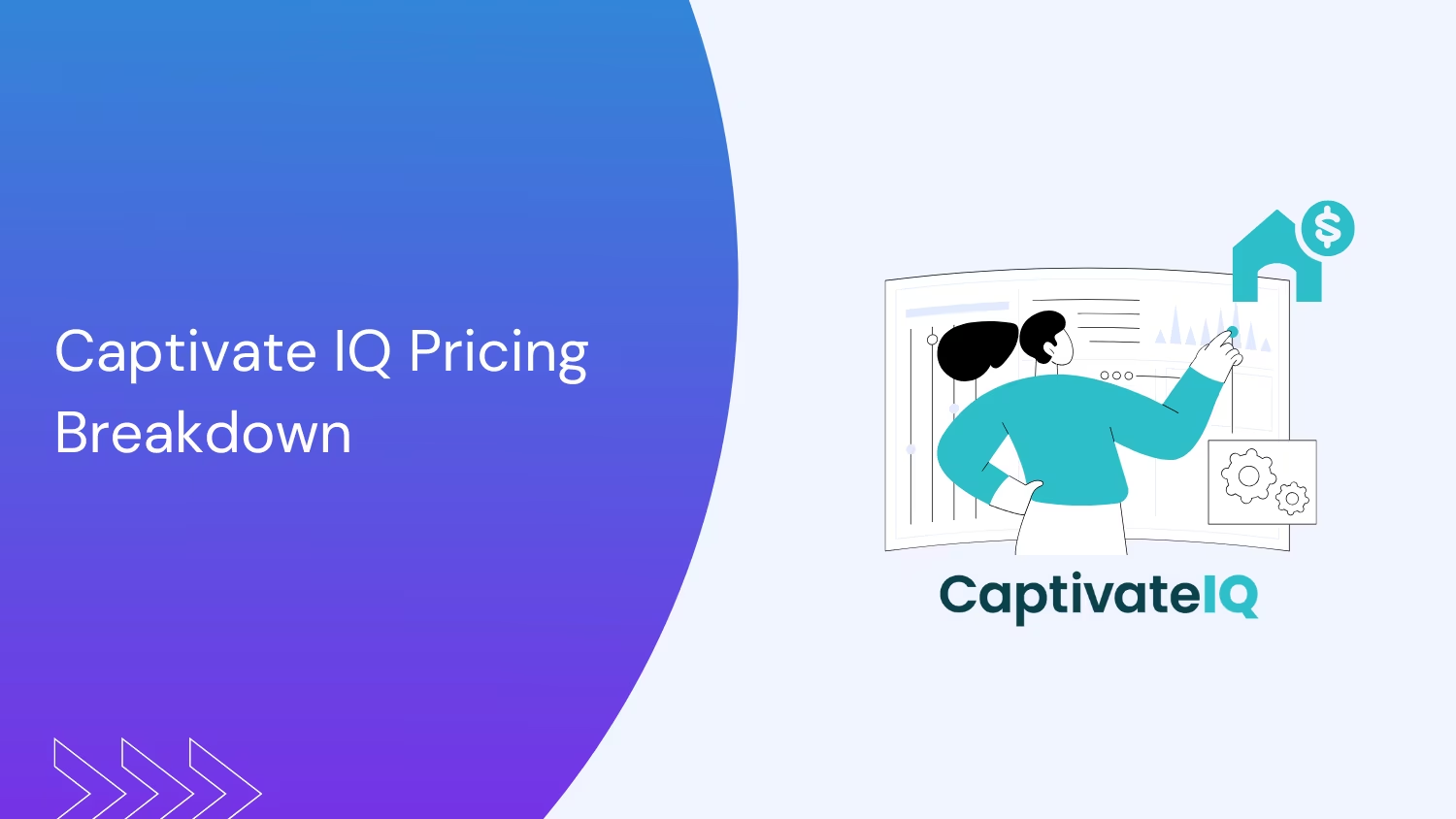
.webp)
.webp)

